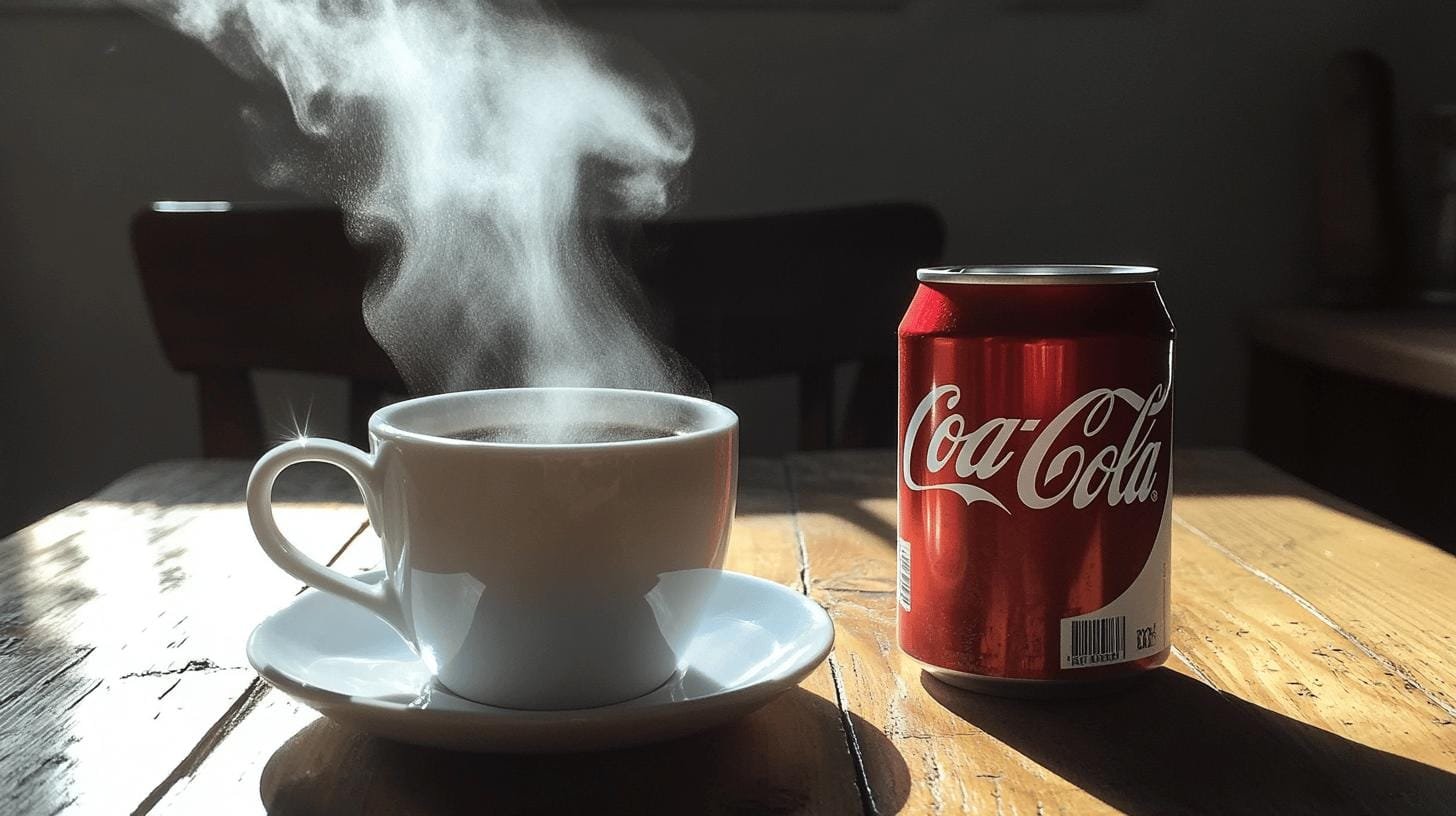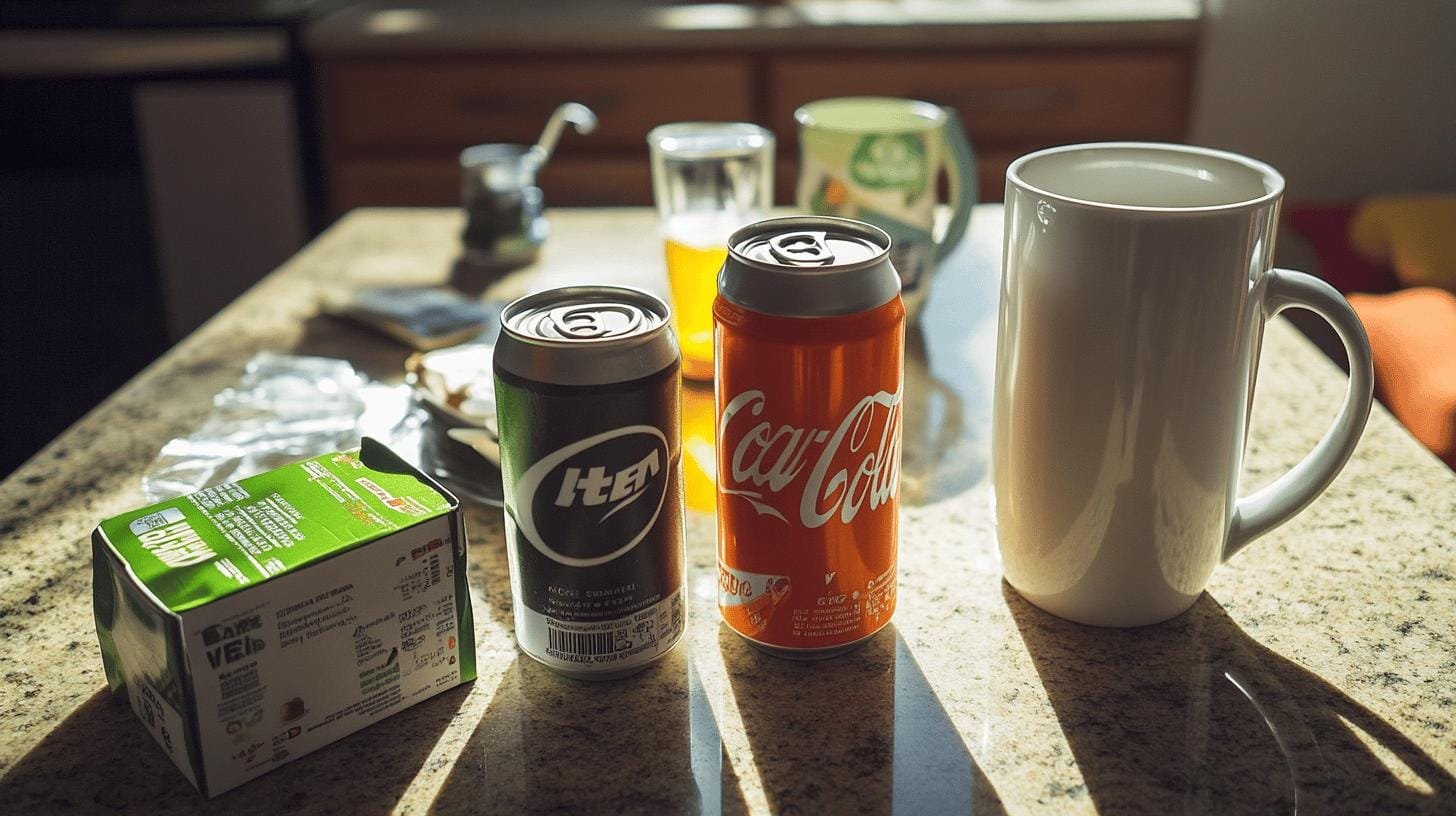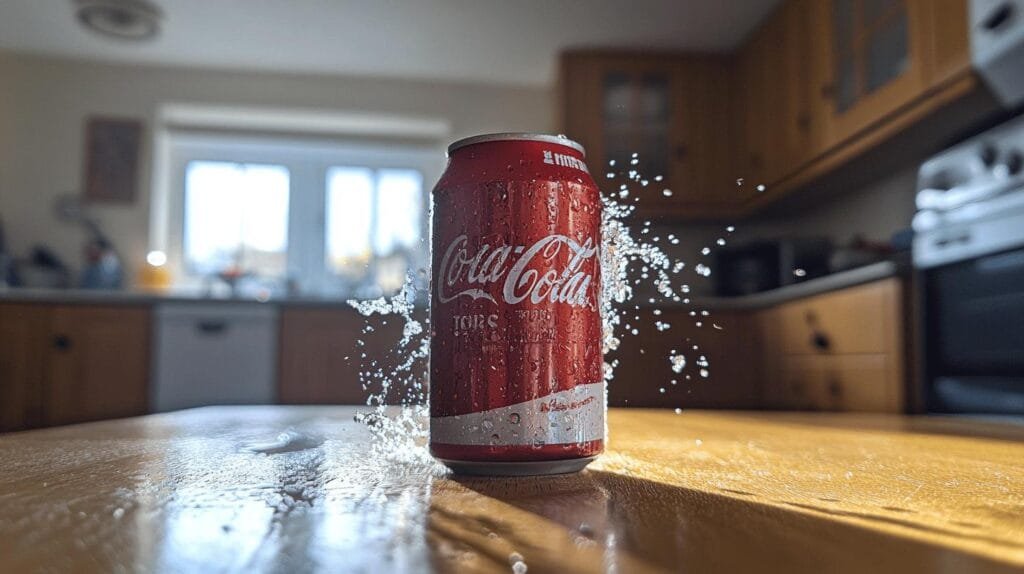Is your favorite soda hiding a caffeinated secret? Surprisingly, a 12-ounce can of Diet Coke contains 46 mg of caffeine, surpassing its regular counterpart by a significant margin. This intriguing difference raises questions about the role caffeine plays in our daily beverage choices and its potential impact on health. As consumers become more conscious of caffeine intake, understanding these variations becomes crucial. This article presents a detailed analysis of the amount of caffeine in Diet Coke, exploring comparisons with other popular drinks and offering insights into safe consumption practices.
Amount of Caffeine in Diet Coke: Detailed Analysis
Diet Coke is known for its higher caffeine content compared to regular Coke. A 12-ounce can of Diet Coke has 46 mg of caffeine, while regular Coke has 34 mg in the same size. This highlights Diet Coke’s unique place among Coca-Cola beverages.
- Diet Coke (12 oz): 46 mg of caffeine
- Regular Coke (12 oz): 34 mg of caffeine
- Typical Soda: Generally less than Diet Coke
The reason for higher caffeine in Diet Coke is not officially explained by Coca-Cola. However, many believe the extra caffeine enhances its taste and strength. Although this is speculative, it matches consumer expectations for a bold flavor. Being aware of the amount of caffeine in diet coke helps consumers make informed choices, especially when comparing different sodas.
Comparing Caffeine in Diet Coke and Coffee

Diet Coke offers a moderate caffeine option with 46 mg per 12-ounce can. In contrast, a standard coffee cup holds about 95 mg, over twice as much. Regular Coke has about 34 mg of caffeine, less than both Diet Coke and coffee.
Coffee vs. Diet Coke
- Caffeine Content: Coffee has about 95 mg per 8-ounce serving, while Diet Coke holds 46 mg in 12 ounces.
- Serving Size: Coffee is often served larger, leading to higher caffeine intake.
- Consumption Habits: People tend to drink multiple cups of coffee daily, adding to caffeine intake more than occasional Diet Coke.
- Flavor Profile: Coffee’s bitterness is paired with high caffeine, and Diet Coke’s taste benefits from added caffeine.
- Consumer Preferences: Coffee is favored for a stronger kick; Diet Coke is chosen for a lighter, refreshing experience.
Coffee’s natural origins and brewing methods give it more caffeine than sodas. Coffee beans naturally contain more caffeine, and brewing extracts it effectively. This results in a stronger energy boost, guiding consumers to choose based on their needed caffeine level. Understanding these differences helps manage caffeine intake according to personal needs.
Health Implications of Caffeine in Diet Coke
Caffeine guidelines suggest limiting intake to around 400 mg daily. This equals over 11 cans of Diet Coke, each with 46 mg. Though safe for most adults, it’s crucial to consider all caffeine sources to stay below this limit. Excess caffeine can cause anxiety and sleep issues. Knowing the amount of caffeine in Diet Coke helps those monitoring their intake.
- Insomnia: High caffeine can disrupt sleep patterns.
- Increased Heart Rate: Excess caffeine may raise heart rate, a concern for heart health.
- Anxiety: Caffeine can worsen anxiety symptoms, so intake should be regulated.
- Digestive Issues: High caffeine can cause stomach issues like acid reflux.
Moderation is crucial to enjoying caffeine’s benefits without adverse effects. Balancing consumption and understanding personal caffeine sensitivity help people maintain a level that’s beneficial to their health.
Caffeine in Diet Coke Compared to Other Beverages

Diet Coke offers moderate caffeine, standing out among popular drinks. In an 8-ounce serving, it contains 28 mg of caffeine.
| Beverage |
Caffeine Content per 8 oz |
| Coke |
21 mg |
| Diet Coke |
28 mg |
| Green Tea |
35 mg |
| Energy Drinks |
77 mg |
| Coffee |
95 mg |
Diet Coke’s moderate content makes it appealing for a balance of taste and caffeine. Coffee and energy drinks offer more, while Diet Coke offers less intense effects. It surpasses regular Coke, rivals green tea, and suits those managing their caffeine intake. Understanding these differences helps consumers choose drinks aligning with their preferences.
Tips for Managing Caffeine Intake
Monitoring caffeine is crucial for health and avoiding side effects. With a daily limit of about 400 mg, people can enjoy caffeine’s benefits responsibly. This is key for those drinking Diet Coke, with 46 mg per 12-ounce can. Understanding one’s consumption helps manage it effectively.
- Opt for decaffeinated options to reduce caffeine.
- Limit portion sizes with smaller servings.
- Gradually decrease caffeine to avoid withdrawal.
- Replace caffeinated drinks with water or herbal teas.
- Check labels on drinks for caffeine details.
- Be aware of hidden caffeine in chocolate or medications.
Knowing personal caffeine sensitivity is key to adjusting habits. Tolerance levels vary, with some sensitive to small amounts. Recognizing this helps people tailor their intake to be safe. Awareness and moderation ensure effective caffeine management, promoting a balanced lifestyle.
Final Words
Understanding the amount of caffeine in Diet Coke is not just about numbers; it plays a vital role in making informed decisions about daily caffeine consumption. This analysis highlights that a 12-ounce can of Diet Coke contains 46 mg of caffeine, higher than regular Coke but significantly less than coffee.
Recognizing and comparing caffeine levels across beverages empowers consumers to navigate their preferences effectively. Balancing one’s caffeine intake, while considering health implications, can lead to more mindful consumption practices. Approaching caffeine with awareness ensures a healthier lifestyle without sacrificing the enjoyment of a favorite soda.
FAQs
What is the amount of caffeine in Diet Coke compared to coffee?
A 12-ounce can of Diet Coke contains 46 mg of caffeine. In comparison, a standard cup of coffee has approximately 95 mg, making coffee about twice as caffeinated as Diet Coke.
Does Coke Zero have less caffeine than Diet Coke?
The caffeine content in Coke Zero and Diet Coke is quite similar. Both beverages have comparable levels, but Diet Coke slightly edges ahead in caffeine content per serving size.
Why does Diet Coke have so much caffeine?
Diet Coke contains more caffeine than regular Coke, potentially to enhance its flavor profile. The precise reason isn’t confirmed by Coca-Cola, but it ensures a stronger taste.
How much caffeine is in Coke 330ml?
A 330 ml can of regular Coke contains approximately 34 mg of caffeine, less than a Diet Coke can of the same size, which has around 46 mg.
How much caffeine is in Mountain Dew?
A 12-ounce can of Mountain Dew contains approximately 54 mg of caffeine, which is slightly higher than Diet Coke’s caffeine content for the same serving size.














